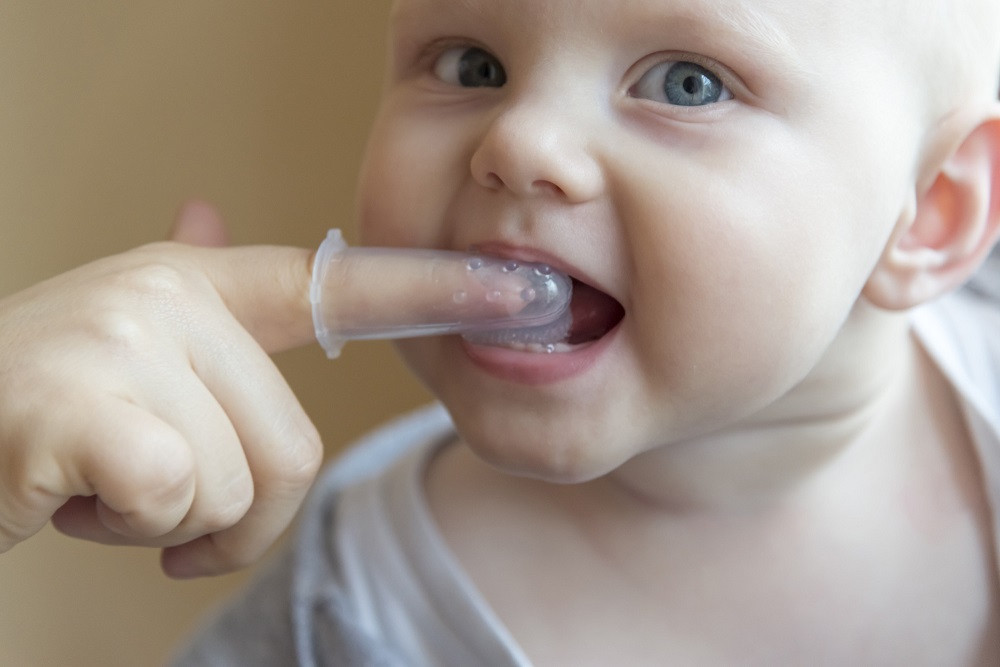As a new parent, you worry about everything.
Is your baby getting enough sleep?
Is that a diaper rash or something worse?
Is your baby teething or sick?
Luckily, you’ve asked your doctor the question, “when do babies start to teeth,” and received an answer.
However, it’s easier on you and your little munchkin if you know the symptoms to look for. So we’ll give you a few of the symptoms of baby teething below. On the other hand, Dentaly has an excellent resource on baby teeth if you want to learn more about them.
Drooling
One of the most common signs that your baby is teething is drooling. The waterworks should begin between the ages of 10 weeks and four months.
It’s hard to believe that all that drool could come out of one tiny human being, but baby teeth growing certainly produce a lot of it.
Make sure to keep a bib on your baby to stop his shirt from being wet, and wipe his chin regularly throughout the day, so he’s comfortable and doesn’t develop a rash.
Biting and Gnawing
If you find your baby biting and chewing on anything they can find, then your baby probably has teething baby gums. The biting and chewing help relieve the pressure of the tooth trying to erupt through the gums.
Help your baby by giving him soft toys, wet washcloths, or silicone teether rings to chew on for comfort.
Crying
Having a tooth, or more than one, pop through your gums is uncomfortable. Your baby will probably be extra irritable, whiny, and cry often during this time.
While it might not do much for your sleep at night, remember, this is your baby’s only way to communicate with you. Try distracting him by going for a walk or playing with him.
You can also talk to your pediatrician to see which pain relievers he thinks will work best to help your little guy until that tooth breaks through.
Fever and Diarrhea
Many babies develop a fever and diarrhea when teething, but not all. Teething causes inflammation, which may result in a low-grade fever. Excessive drooling can cause diarrhea as well.
However, a fever over 101 degrees could be a sign of an illness, so it’s better to schedule your baby an appointment with the pediatrician just to rule out any sickness.
If the baby has over two bowel movements in a day that are runny, it could be a sign of something else’s, so as with the fever, it’s best to consult your doctor.
Decreased Appetite/Sleeping
Teething can make your little one irritable, and it can also stop you and your baby from sleeping at night. But, of course, teething is just one of the reasons that parents don’t sleep after bringing home a baby.
Your little one may have a decreased appetite as well since their gums are sore and they don’t feel good.
When Do Babies Start to Teeth?
So, when do babies start to teeth? Babies usually start teething between 10 weeks and four months of age. However, you can check a baby teeth chart for more information. Every baby is different, so your baby could teeth at a different time.
If you enjoyed this blog on babies and teething, don’t forget to check out our website for recipes, kid’s crafts, and more.

